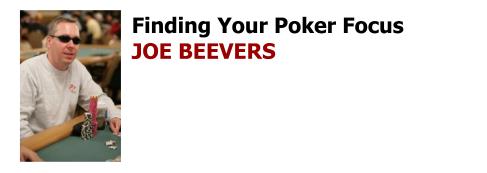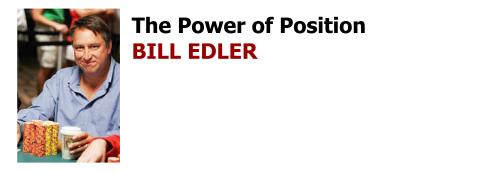Pro Poker Tips: Adjusting to Limit Hold’em Tournaments
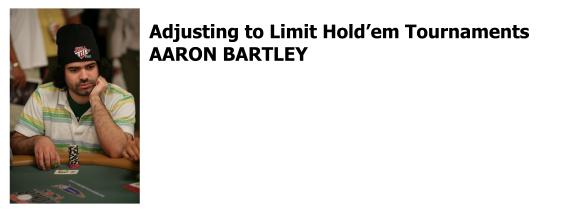
While No-Limit Hold ‘em and Limit Hold ‘em tournaments might look the same to a casual observer, they’re completely different. In a No-Limit Hold ‘em tournament, one big hand can either set you up for a run to the final table or send you home early. That’s not how it works in a Limit Hold ‘em tournament – a single hand is never going to define your entire tournament. You should approach a Limit Hold ‘em tournament more like a cash game by trying to slowly accumulate chips and limiting your mistakes. For players making the transition from No-Limit to Limit Hold ‘em tournaments, a good rule of thumb is to play a little tighter before the flop and a little looser after the flop.
There are several reasons you should play tighter before the flop in a Limit Hold ‘em tournament. One is that you’re rarely, if ever, going to be able to make anyone fold his hand for a single raise before the flop – there’s no point in trying to bully an opponent when you have a weak hand.
You’ll also see a lot more showdowns in Limit than you will in No-Limit. You need to start the hand off right by only playing hands you’re comfortable going all the way with like a big pocket pair, an Ace with a big kicker or maybe even a suited connector.
Another reason for tightening up before the flop is that there are no antes in Limit tournaments. Because the antes come into play so quickly in No-Limit Hold ‘em tournaments, you have to start making moves to steal pots just to prevent your stack from eroding down to nothing. In a Limit Hold ‘em tournament there’s very little incentive to make these moves because of the lack of antes. If you want, you can just sit on your chip stack without having to worry about losing too much ground.
While you’re tightening up before the flop in a Limit tournament, you’re going to want to loosen up after the flop. Again, there are several reasons for this. Because it’s Limit, you know exactly how much it’s going to cost if you call someone down—even if you lose the hand. You’re not going to be charged as much to find out if your opponent’s bluffing or to see if you can catch one of your outs. Unless you’re playing against a really tight player you can be comfortable calling a couple of bets.
Here’s an example of what I’m talking about. Let’s say you raise from the button with A-K, the big blind calls, and the flop comes 9-9-2. Your opponent checks, you bet, and he calls. The turn is a 6, and you both check. The river is another harmless-looking card, but this time your opponent leads out with a bet.
Although you only have Ace-high, you shouldn’t be afraid to call. Since you showed weakness on the turn by just checking, he could be betting with any hand. While this might include pairs that beat you, it could also include a weaker Ace or a bluff.
In this situation in No-Limit Hold ‘em, he could bet half or all the pot to make you fold; but in a Limit tournament, you can afford to call because of the odds you’re getting. The pot has four big bets in it and you only have to call one big bet to see his hand, so you’re getting four-to-one on your money. Of course, it really depends on what sort of player you’re up against. If he’s really tight and you’ve never seen him get out of line, you should fold. But if there’s any chance he might be bluffing, this should be a fairly easy call.
By the same token, when you make a hand like top pair you should bet it aggressively because a lot of players will call you down with hands like ace-high and bottom pair or try to push you off your hand. If you’re at a table full of loose players, you can even raise on the river with top pair or make a value bet with middle pair.
Playing a little tighter before the flop and a little looser after the flop is one of the most important adjustments you should make when switching from No-Limit Hold ‘em to Limit Hold ‘em tournaments.
Making this one simple alteration to your game will give you a leg up on the competition because many of your opponents will continue to play exactly as they do in No-Limit Hold ‘em tournaments.
Aaron Bartley
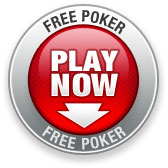 Nicknamed “GambleAB”, Aaron Bartley is one of the world’s best online poker players. Aaron comes from a family of card players. Bridge, Spades, Hearts, Sheepshead, Canasta, and Gin were all a regular part of the evening’s entertainment.
Nicknamed “GambleAB”, Aaron Bartley is one of the world’s best online poker players. Aaron comes from a family of card players. Bridge, Spades, Hearts, Sheepshead, Canasta, and Gin were all a regular part of the evening’s entertainment.
Aaron Bartley plays online at BetOnline Poker, join him at a table sometime soon. (Players from around the World including the US are welcome)
 Here’s one of my favorite hold ’em plays that you can use quite often without opponents adapting.
Here’s one of my favorite hold ’em plays that you can use quite often without opponents adapting.
 If you’re USA-based, play and chat with top professionals online at
If you’re USA-based, play and chat with top professionals online at 
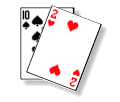 Against very weak opponents, it’s usually not necessary to randomize your decisions. You don’t need to be very deceptive, because a straightforward strategy will usually earn the most money. But against more experienced players it’s a good idea to mix it up, as long as you don’t sacrifice too much in the process.
Against very weak opponents, it’s usually not necessary to randomize your decisions. You don’t need to be very deceptive, because a straightforward strategy will usually earn the most money. But against more experienced players it’s a good idea to mix it up, as long as you don’t sacrifice too much in the process. When you’re down to your last few chips and can play for just the cost of the ante or blind, you should often wait to rebuy until after the hand! That’s because there are no better pot odds you than to be able to see the showdown for free with everyone else at the table matching your money with their antes.
When you’re down to your last few chips and can play for just the cost of the ante or blind, you should often wait to rebuy until after the hand! That’s because there are no better pot odds you than to be able to see the showdown for free with everyone else at the table matching your money with their antes.